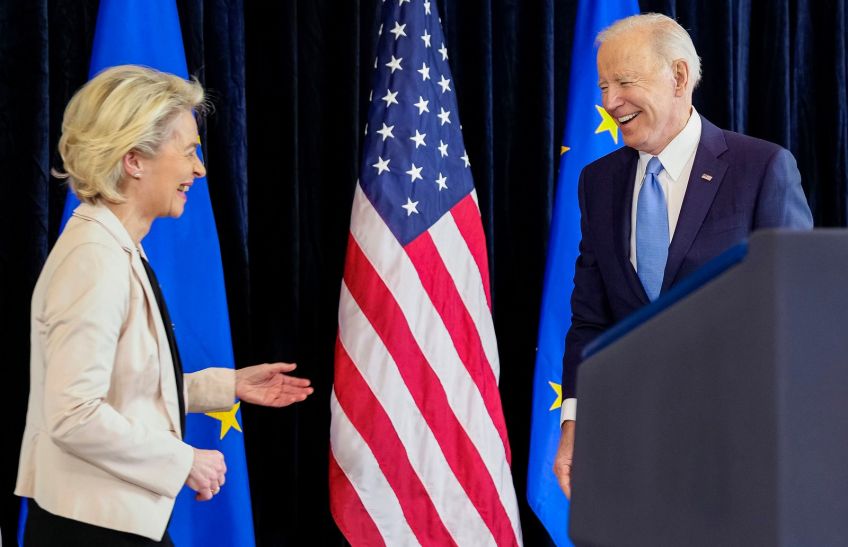
"We are all protectionists now!" - Green and geopolitical protectionism on both sides of the Atlantic
At the 2023 World Economic Forum, the President of the European Commission Ursula von der Leyen said “China has been openly encouraging energy-intensive companies in Europe and elsewhere to relocate all or part of their production. They do so with the promise of cheap energy, low labour costs and a more lenient regulatory environment. At the same time, China heavily subsidises its industry and restricts access to its market for EU companies.”
Even if the President of the Commission was speaking of China, von der Leyen could easily be referring to the US, and to the newly signed Inflation Reduction Act (IRA). The IRA is incentivizing “companies in Europe and elsewhere to relocate all or part of their production”. Tesla announced in September that it will open a battery plant in the US, instead of Germany, while Spanish energy company Iberdrola and French aviation, defense, and space company Safran decided to relocate part of their activity to the US. Other companies such as the German carmakers Volkswagen, BMW and Audi, the Italian Energy company Enel, the German chemicals company Linde, the Swedish battery company Northvold, expressed their interest in altering production decisions to benefit from US subsidies.
Just as China, the US offers “cheap energy” and “a more lenient regulatory environment” than the EU. In addition, even if it is far from clear that the US has lower labor costs (it depends on the sector and on the Member State that serves as a comparison), it seems evident that it has less protective labor laws. Finally, the US will “heavily subsidize its industry” and “restrict access to its market for EU companies” through local content requirements. However, perhaps more importantly than attracting investment, the US is creating incentives to become a dominant player in the clean technology of the future and, simultaneously, creating jobs and revamping their industry.
As noted by IMF economists in a famous paper called “the Return of the Policy That Shall Not Be Named: Principles of Industrial Policy”, the days when industrial policy suffered from “bad reputation” are long gone. If the US is shifting to a more interventionist industrial strategy, the EU had already signaled a different approach before the peak of the COVID crisis and the war in Ukraine when it presented the 2020 Industrial Strategy. In the meantime, Commissioner Thierry Breton has been vocal on the need for an effective strategy to boost EU industry for a while. On the 17th of January of this year, President Ursula von der Leyen announced a Green Deal Industrial plan, a package that aligns with a new form of green and industrial protectionism.
In order to fulfill climate objectives and simultaneously decrease the geopolitical dependencies, it adopts a strategy of loosening state aid rules and promoting import substitution of both critical raw materials and clean tech components and products.
The IRA might have been a game changer for industrial policy on both sides of the Atlantic. With a more interventionist approach, Americans and Europeans can decrease their dependencies vis-à-vis countries such China, while making available more funds to fight climate change. In this new paradigm, both the US and the EU may increase the resilience of their supply chains and, simultaneously, accelerate the green transition at the global level. If President Nixon, who could hardly be referred to as a pro-interventionist, had popularized the famous statement “We are all Keynesians now!”, we can say that, as the world enters 2023, “We are all Protectionists now!”
You will find the full brief here.


